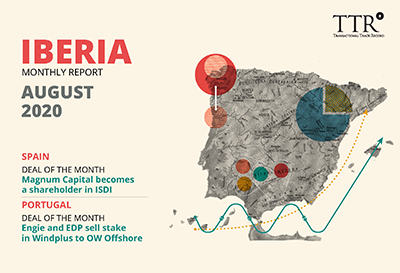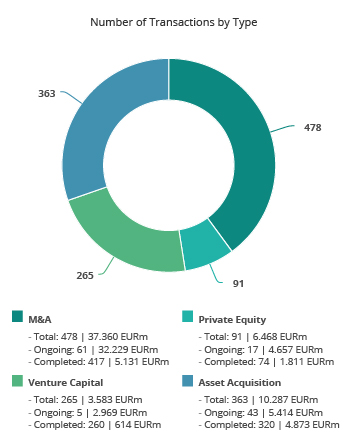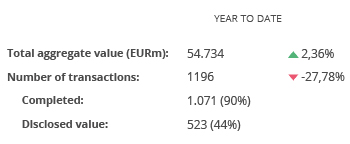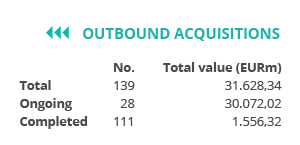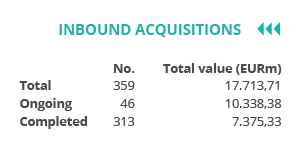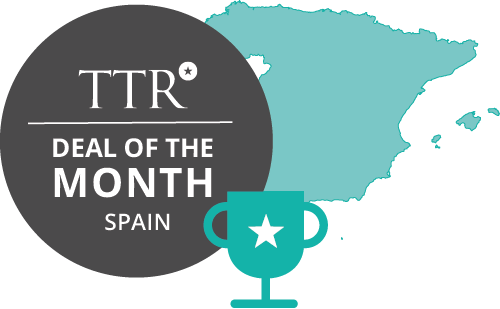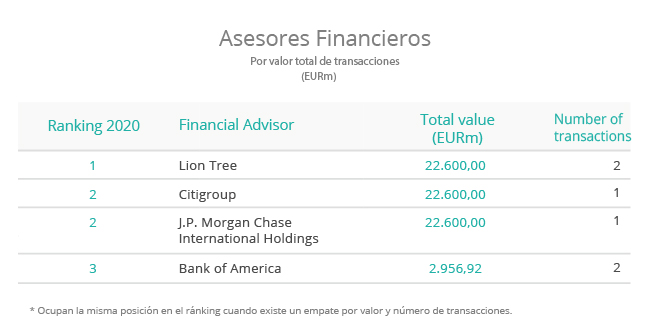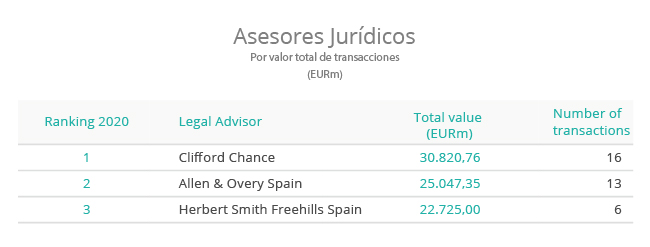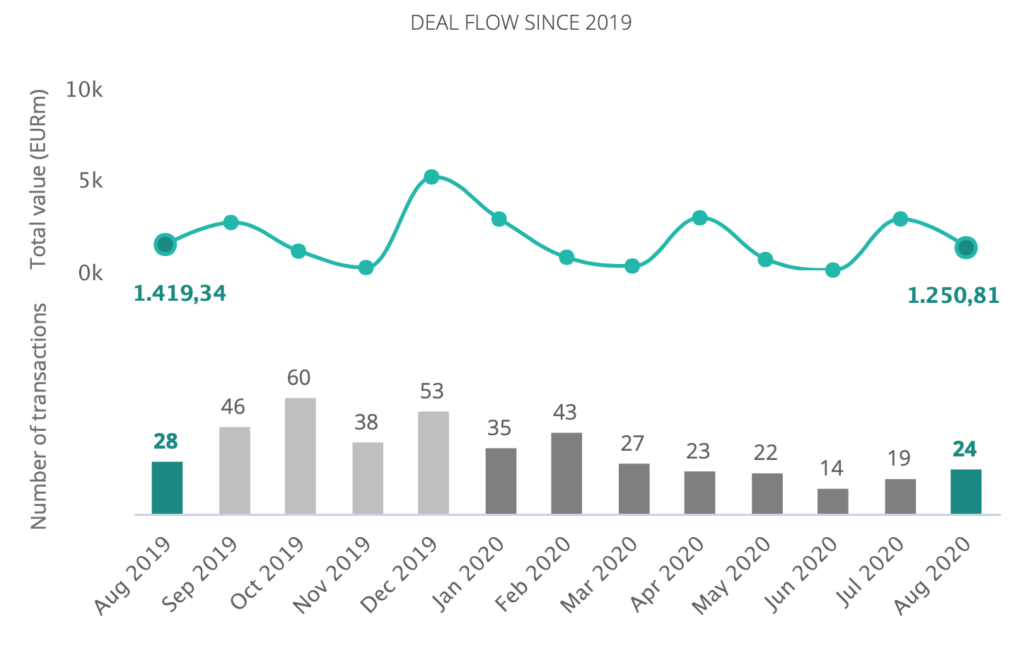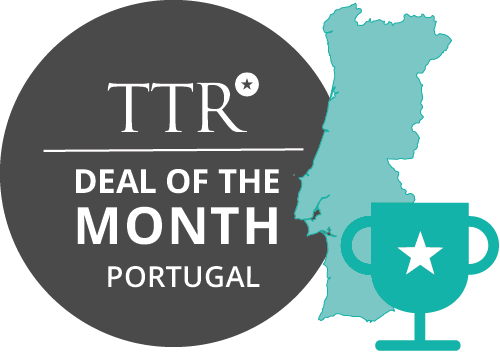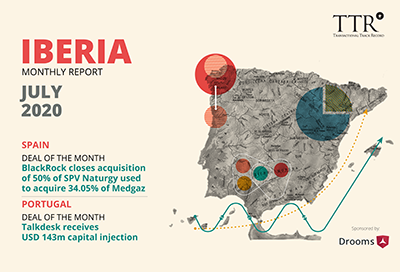TTR DealMaker Q&A with Cuatrecasas Partner Federico Roig

Federico Roig es socio de la práctica de Corporate M&A de Cuatrecasas. Es especialista en derecho mercantil, en particular en el campo de fusiones y adquisiciones, private equity, acuerdos de joint venture, restructuraciones de grupos societarios y asesoramiento contractual. Destaca su experiencia en el sector industrial, con particular relevancia dentro del campo de la energía, transporte e infraestructuras.
TTR – La actividad de fusiones y adquisiciones en 2020 al parecer se ve afectada por la crisis de salud del COVID-19. ¿Cómo describiría la situación actual del mercado de fusiones y adquisiciones en España?
F.R. – El impacto del Covid- 19 ha sido severo en el mercado de M&A en Iberia tanto en volumen como en valor de las operaciones, con caídas de doble dígito en ambos parámetros. Sin embargo, dicho impacto ha sido desigual en función del sector de actividad y del tipo de inversor.
Así, los sectores más castigados por la crisis de la pandemia han sido el turismo, transporte aéreo y hoteles/hostelería, afectando muy especialmente a todo el sector de SME’s (Pymes).
Sin embargo otros sectores han resistido mejor la crisis tales como el sector de telecomunicaciones y energía.
En cuanto al tipo de inversor, hemos visto como los fondos de private equity (PEQ) se concentraban en la defensa de sus portafolios durante la primera mitad del año y, sin embargo, aumentaba la liquidez disponible en el mercado con el levantamiento de nuevos fondos durante el mismo periodo (por importe de unos 50.000 millones para inversión en España, según información pública reciente).
TTR – Cuatrecasas, al ser uno de los líderes del asesoramiento en M&A en España según nuestro ranking legal TTR: ¿Cómo ha manejado la crisis actual en términos de asesoramiento y qué oportunidades han encontrado en los últimos meses a través de la coyuntura en España?
F.R. – A pesar de que el impacto del COVID-19 se ha hecho notar en casi toda la actividad de M&A, en el despacho hemos estado muy ocupados durante el año y vemos un repunte de actividad en este segundo semestre.
Nuestra actividad se ha concentrado, especialmente, en operaciones de M&A en el sector de la energía y en el asesoramiento recurrente en reestructuraciones y renegociación de contratos suscritos por las compañías dentro de los portafolios de nuestros clientes, seriamente afectados por el impacto del Covid-19. En este sentido hemos notado un claro incremento de la actividad de M&A tras la vuelta del verano.
TTR – ¿Como luce el panorama de M&A en España para el cuarto trimestre e inicios de 2021? Cuáles sectores podrían brindar mayores oportunidades a inversores con potencial financiero?
F.R. – Todavía quedan meses por delante donde el impacto del Covid-19 se hará sentir, así que es difícil saber lo que pasará en los próximos meses y año 2021.
Tenemos que ser cautos pero creo que las actividades de M&A irá recuperándose poco a poco y seguiremos viendo movimiento y operaciones relevantes en el campo de la energía (en particular en renovables) y en PEQ, por esa liquidez que existe en el mercado y antes comentaba y que debe invertirse en empresas con potencial de crecimiento. Estamos viendo además cómo los operadores de M&A empiezan a ajustar las valoraciones y eso es siempre un catalizador de nuevas operaciones.
Tampoco hay que olvidar el proceso de consolidación en ciertos sectores como las telecomunicaciones y la banca, que pueden impulsar nuevas operaciones corporativas en el sector, aunque serán operaciones más puntuales y de mayor tamaño.
TTR – En cuanto a reestructuraciones societarias, ¿cuál es la situación actual y cuáles son las perspectivas para los próximos meses en España?
F.R. – Si hay un sector que, como consecuencia de la pandemia del COVID-19, ha estado especialmente activo durante este año 2020 ese ha sido el de las reestructuraciones corporativas y de deuda.
La crisis sanitaria supuso que se formara una “tormenta perfecta” en aquellas compañías con niveles altos de deuda que vieron cómo, de la manera más abrupta, se recortaban sus ingresos, al mismo tiempo que los bancos restringían y endurecían la disponibilidad de líneas de circulante, secando así la liquidez de muchas compañías que se han visto obligadas a renegociar deuda y reestructurar su pasivo para asegurar su subsistencia.
Esta situación se mantiene en la actualidad y veremos incrementar la actividad en este campo en el próximo año.
TTR – ¿Cómo describiría las medidas tomadas por el Gobierno español para sobrellevar la crisis empresarial provocada por el impacto de la lucha contra COVID-19? ¿Qué otras medidas se necesitan en el corto plazo para asegurar la recuperación económica?
F.R. – El Gobierno ha puesto en marcha determinadas medidas, como los avales y medidas de financiación a través del ICO, que pueden ser un estímulo importante para la maltrecha situación de muchas empresas en España.
La clave de estos programas de apoyo financiero va a estar en los mecanismos de asignación de los recursos disponibles, que deberían ser ágiles y, sobre todo, destinados a inversión productiva, sabiendo distinguir entre aquellas empresas generadoras de empleo respecto de aquellas otras con poca o nula viabilidad en el medio/largo plazo.
En este sentido creo que, además de ayudas financieras directas como las antes mencionadas, sería necesario impulsar medidas más estructurales, tales como moratorias o reducción de pago de impuestos y cotizaciones a la SS para las empresas, que son al final el motor de generación de empleo más eficaz.

